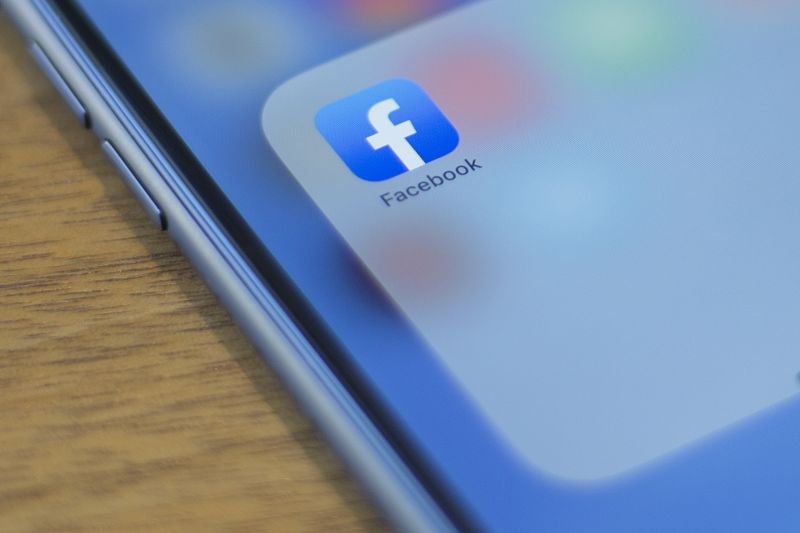The Rise of Fake Accounts
The proliferation of fake Facebook accounts, particularly those linked to Russia, has become a significant concern in recent years. These accounts are often used to manipulate public opinion, spread misinformation, and influence political discourse, raising serious questions about the integrity of online platforms and the democratic process.
Motivations Behind Fake Account Creation
The creation of fake Facebook accounts is often driven by a range of motivations, including political influence, financial gain, and personal satisfaction. In the case of Russia, fake accounts are often used to promote pro-Kremlin narratives, sow discord among opposing groups, and undermine democratic institutions.
- Political Influence: Fake accounts can be used to amplify pro-government messages, suppress opposing voices, and influence public opinion on key political issues. For example, during the 2016 US presidential election, Russian-linked accounts were used to spread misinformation and propaganda, potentially influencing the outcome of the election.
- Financial Gain: Fake accounts can be used to generate revenue through various means, such as creating fake followers for social media influencers, spreading spam, and engaging in click fraud.
- Personal Satisfaction: Some individuals create fake accounts for personal reasons, such as seeking attention, building a false sense of popularity, or engaging in online harassment.
The Impact of Fake Accounts on Facebook
Fake accounts, often created with malicious intent, pose a significant threat to the integrity and trustworthiness of Facebook’s platform. They disrupt social interactions, spread misinformation, and undermine the platform’s ability to connect people authentically.
The Erosion of Trust and Accuracy
Fake accounts can manipulate public opinion, spread false information, and erode trust in the platform. By creating a false sense of popularity or consensus, they can influence user behavior and decision-making. The proliferation of fake accounts can make it difficult for users to discern genuine content from fabricated narratives, undermining the credibility of information shared on Facebook.
Disrupting Social Interactions and Spreading Harmful Content
Fake accounts can create a hostile environment for genuine users, contributing to the spread of hate speech, harassment, and misinformation. They can amplify divisive narratives, promote conspiracy theories, and sow discord among users. By creating fake profiles, individuals can manipulate social interactions, spread propaganda, and disrupt online communities.
Challenges in Identifying and Removing Fake Accounts, Facebook notify fake russian account
Facebook faces significant challenges in identifying and removing fake accounts due to the sophisticated techniques used by malicious actors. These accounts often utilize advanced algorithms to mimic human behavior, making them difficult to distinguish from genuine profiles. Furthermore, the sheer volume of accounts created daily makes it challenging to manually review and remove every suspicious profile.
Strategies to Combat Fake Accounts
Facebook has implemented various strategies to combat the proliferation of fake accounts. These include:
- Advanced detection algorithms: Facebook utilizes sophisticated algorithms to analyze user behavior, account activity, and content patterns to identify suspicious accounts.
- Human review: Facebook employs a team of human reviewers who manually examine accounts flagged by algorithms, further verifying their authenticity.
- Account verification: Facebook encourages users to verify their accounts through phone number or email confirmation, making it harder for fake accounts to gain legitimacy.
- Collaboration with law enforcement: Facebook collaborates with law enforcement agencies to investigate and take down accounts involved in illegal activities.
- User reporting: Facebook encourages users to report suspicious accounts, providing valuable data to its detection algorithms.
The Role of Facebook Notifications
Facebook notifications are a crucial part of the platform, designed to keep users informed about activity related to their accounts. These notifications inform users about friend requests, messages, comments, likes, shares, and other interactions. They are a key tool for staying connected with friends, family, and other users.
Exploitation of Facebook Notifications by Fake Accounts
Fake accounts can exploit Facebook’s notification system to manipulate users and spread misinformation. They can use notifications to create a sense of urgency or importance, leading users to click on links or engage with content that may be malicious or misleading. This can involve a range of tactics, including:
- Sending spam notifications: Fake accounts can send out mass notifications to large groups of users, promoting irrelevant or harmful content. These notifications often appear legitimate, but they can be used to spread misinformation or promote scams.
- Creating a sense of urgency: Fake accounts can use notifications to create a sense of urgency, encouraging users to take immediate action. This can be done by sending notifications that appear to be from friends or family members, urging users to click on a link or engage with a specific piece of content.
- Targeting specific individuals or groups: Fake accounts can use notifications to target specific individuals or groups with tailored content. This can involve sending personalized messages that exploit the interests or beliefs of the target audience. This can be used to spread misinformation or promote propaganda.
Examples of Fake Account Notification Tactics
One example of how fake accounts can exploit notifications is through the use of phishing attacks. Fake accounts can send notifications that appear to be from a legitimate source, such as a bank or credit card company. These notifications often contain links to fake websites that are designed to steal user credentials.
Another example is the use of clickbait notifications. Fake accounts can send notifications that contain sensational headlines or images, designed to entice users to click on a link. These links often lead to websites that contain misleading or harmful content.
“Fake accounts can use notifications to create a sense of urgency, encouraging users to take immediate action. This can be done by sending notifications that appear to be from friends or family members, urging users to click on a link or engage with a specific piece of content.”
Strategies for Identifying Fake Accounts: Facebook Notify Fake Russian Account
Navigating the vast digital landscape of social media platforms like Facebook can be challenging, especially when trying to discern genuine accounts from fabricated ones. While Facebook employs sophisticated algorithms to detect and remove fake accounts, users also play a crucial role in identifying and reporting suspicious activity. This section explores key indicators that can help users identify fake accounts, empowering them to make informed decisions about the content they encounter.
Indicators of Fake Accounts
Identifying fake accounts requires a keen eye for inconsistencies and suspicious patterns. While no single indicator is definitive, a combination of these signs can raise red flags:
| Sign | Explanation |
|---|---|
| Suspicious Activity |
|
| Inconsistent Profile Information |
|
| Unusual Posting Patterns |
|
Tips for Identifying Fake Accounts
Here are some practical tips to help you navigate the social media landscape with increased awareness:
- Verify Profile Information: Take the time to scrutinize the profile information, looking for inconsistencies or red flags. Cross-reference the account’s details with other online sources to validate their authenticity.
- Be Cautious of Suspicious Links: Avoid clicking on links from accounts that seem suspicious or promote unrealistic offers or opportunities. These links may lead to malicious websites or phishing scams.
- Pay Attention to Engagement Patterns: Observe the engagement levels on an account’s posts. A disproportionate number of likes, comments, or shares compared to the account’s overall follower count can indicate artificial amplification.
- Report Suspicious Accounts: If you encounter an account that you believe is fake, report it to Facebook. This helps Facebook’s algorithms identify and remove these accounts from the platform.
The Importance of User Awareness
In the digital age, where information spreads like wildfire, user awareness is paramount in combating the proliferation of fake accounts and misinformation on platforms like Facebook. While Facebook employs various measures to identify and remove fraudulent accounts, the responsibility for maintaining a secure and trustworthy online environment ultimately lies with the users themselves. By understanding the tactics employed by fake accounts and practicing critical thinking, users can play a crucial role in protecting themselves and the platform from malicious actors.
Identifying Suspicious Accounts
Users should be vigilant in recognizing potential red flags associated with fake accounts. Here are some key indicators to watch out for:
- Unusual Profile Pictures: Fake accounts often use generic or stolen images, sometimes featuring celebrities or models. A profile picture that seems too perfect or unrealistic could be a warning sign.
- Limited Information: Fake accounts may have incomplete profiles, lacking personal details or connections. A profile with minimal information, especially about the user’s background or interests, could be a red flag.
- Suspicious Activity: Fake accounts might engage in unusual behavior, such as sending unsolicited friend requests, posting spammy content, or promoting dubious products or services.
- Inconsistent Information: Inconsistencies in a user’s profile, such as conflicting information about their location, age, or interests, could indicate a fake account.
Reporting Suspicious Accounts
Facebook provides tools for users to report suspicious accounts. If you encounter an account that you believe to be fake, it’s important to report it to Facebook so that they can investigate and take appropriate action.
- Report Button: Most Facebook profiles have a “Report” button, which allows you to flag the account for review. When reporting a suspicious account, provide detailed information about why you believe it is fake, including any specific examples of suspicious behavior.
- Help Center: Facebook’s Help Center provides detailed instructions on how to report different types of issues, including fake accounts. You can access the Help Center through the Facebook website or app.
Verifying Information
In the age of misinformation, it’s essential to verify the information you encounter online, especially on social media platforms. Don’t blindly accept everything you read or see. Here are some tips for verifying information:
- Check the Source: Always consider the source of the information. Is it from a reputable news organization, a trusted academic institution, or a government agency? Be wary of information from anonymous sources or websites with questionable reputations.
- Look for Corroboration: See if the information is reported by multiple credible sources. If the information is only coming from one source, it could be unreliable or biased.
- Fact-Checking Websites: Several websites are dedicated to fact-checking information, such as Snopes, PolitiFact, and FactCheck.org. These websites can help you determine the accuracy of claims and identify potential misinformation.
Facebook notify fake russian account – The fight against fake accounts is a constant battle, requiring a multifaceted approach. Facebook, as a platform, must continue to improve its detection and removal strategies, while users must remain vigilant, critically evaluating the information they encounter and reporting suspicious activity. By understanding the tactics employed by fake accounts and taking proactive steps to protect ourselves, we can contribute to a more secure and trustworthy online environment.
Getting a notification from Facebook about a fake Russian account can be a bit of a shock, especially if you’re not familiar with the platform’s security features. But it’s actually a good thing, indicating that Facebook is actively working to keep your account safe. And while you’re on the topic of security, have you seen the galaxy s9 plus benchmarks 4gb ram ?
It’s pretty impressive, considering how much processing power it can handle. Anyway, back to Facebook, remember to double-check your account settings and report any suspicious activity to ensure your online safety.
 Standi Techno News
Standi Techno News

